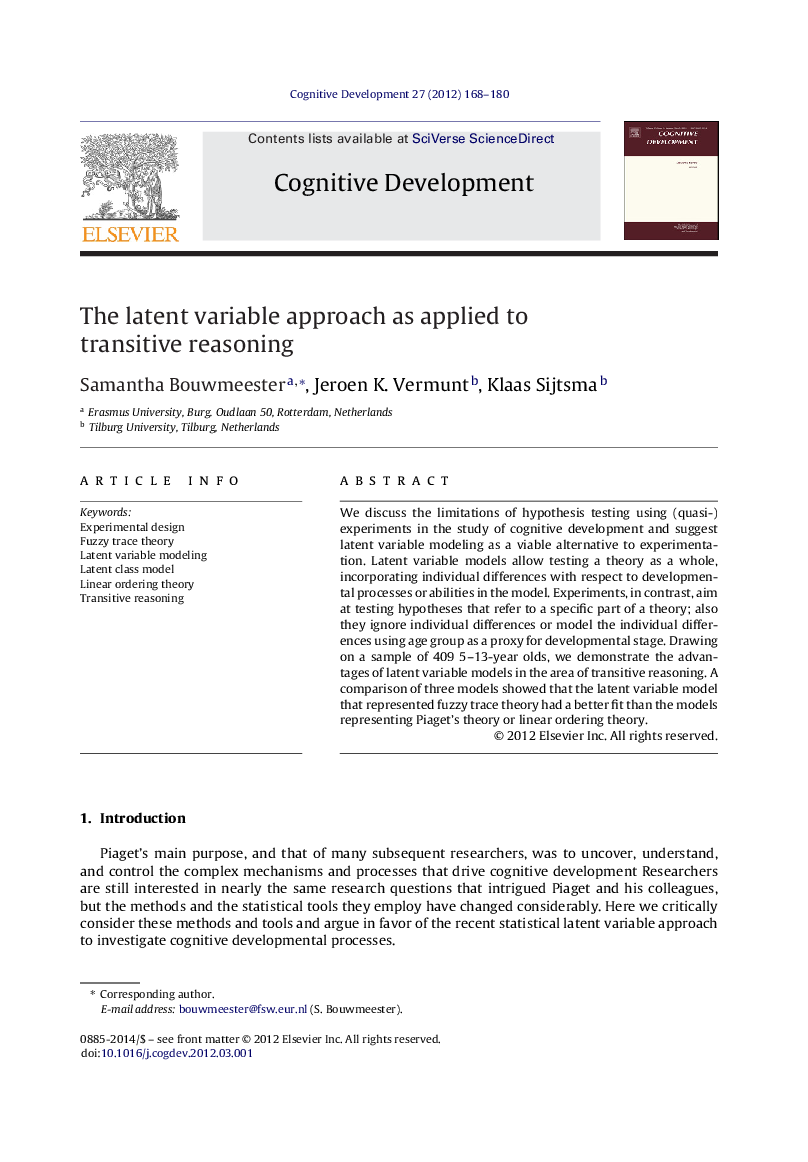| Article ID | Journal | Published Year | Pages | File Type |
|---|---|---|---|---|
| 916587 | Cognitive Development | 2012 | 13 Pages |
We discuss the limitations of hypothesis testing using (quasi-) experiments in the study of cognitive development and suggest latent variable modeling as a viable alternative to experimentation. Latent variable models allow testing a theory as a whole, incorporating individual differences with respect to developmental processes or abilities in the model. Experiments, in contrast, aim at testing hypotheses that refer to a specific part of a theory; also they ignore individual differences or model the individual differences using age group as a proxy for developmental stage. Drawing on a sample of 409 5–13-year olds, we demonstrate the advantages of latent variable models in the area of transitive reasoning. A comparison of three models showed that the latent variable model that represented fuzzy trace theory had a better fit than the models representing Piaget's theory or linear ordering theory.
